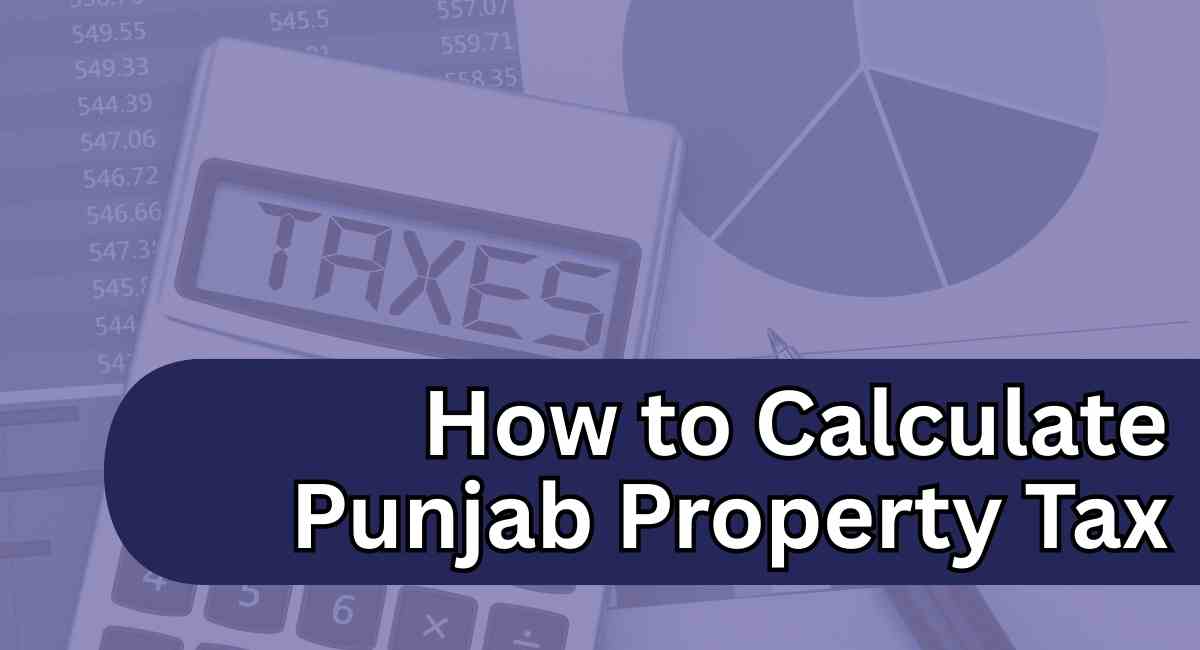Punjab Property Tax Calculator
Estimate your property tax liability in Punjab with our accurate calculator
Your Tax Estimate
Annual property tax liability for your property

Understanding Property Tax in Punjab: A Comprehensive Guide
Property tax in Punjab is an essential source of revenue for local governments, funding critical municipal services including sanitation, road maintenance, and public facilities. The Punjab Revenue Authority (PRA) oversees property tax collection across the province, with rates varying by location, property type, and size.
Our Punjab Property Tax Calculator provides instant estimates, but actual tax liability may vary based on official assessments. For precise figures, consult your local tax authority or visit the Punjab Revenue Authority website.
How Property Tax is Calculated in Punjab
Punjab property tax calculation follows a standardized formula based on several factors:
| Factor | Description | Impact on Tax |
|---|---|---|
| Annual Rental Value (ARV) | Estimated yearly rental income of the property | Primary tax base (5-7% of ARV) |
| Property Type | Residential, commercial, industrial, or agricultural | Commercial: 7%, Residential: 5% |
| Location | City and specific area within the city | Multiplier applied (1.0x-1.8x) |
| Property Size | Covered area in square feet | Larger properties pay more |
| Age of Property | Year of construction | Older properties may have discounts |
The standard tax formula used by our Punjab Property Tax Calculator is:
Annual Tax = (Annual Rental Value × Property Type Rate × Location Factor) – Applicable Deductions
Property Tax Rates Across Punjab
Property tax rates in Punjab vary significantly based on location and property classification. Below are the current rates for major cities:
| City | Residential Rate | Commercial Rate | Industrial Rate |
|---|---|---|---|
| Lahore | 5% of ARV | 7% of ARV | 7% of ARV |
| Faisalabad | 5% of ARV | 7% of ARV | 6.5% of ARV |
| Rawalpindi | 5% of ARV | 7.5% of ARV | 7% of ARV |
| Multan | 4.5% of ARV | 6.5% of ARV | 6% of ARV |
| Gujranwala | 5% of ARV | 7% of ARV | 6.5% of ARV |
Important Considerations for Property Owners
Exemptions and Deductions
Properties under 5 marlas (125 sq. yards) may qualify for tax exemptions. Senior citizens and disabled persons can apply for special deductions with proper documentation.
Commercial Properties
Commercial properties face higher tax rates but can deduct business expenses. Location significantly impacts tax liability – prime commercial areas have higher valuation rates.
Agricultural Land
Agricultural land is taxed differently based on productivity and irrigation facilities. Owners should consult the local Board of Revenue for specific agricultural property tax rates.
Industrial Properties
Special economic zones offer tax holidays for qualifying industrial properties. Standard industrial tax rates apply after exemption periods expire.
Paying Your Property Tax in Punjab
The Punjab Revenue Authority has simplified tax payments through multiple channels:
- e-Pay Punjab: The official online portal for property tax payments
- Designated Banks: All major banks accept property tax payments
- PRA Offices: Direct payment at district revenue offices
- Mobile Apps: Official PRA app available on Android and iOS
Timely payments qualify for a 10% rebate in most districts, while late payments incur penalties of 2% per month. Property owners should maintain payment records for at least seven years.
Pro Tip: The Punjab Revenue Authority offers a 5% prompt payment discount if you pay your entire annual property tax liability within the first quarter of the fiscal year (July-September).
Frequently Asked Questions
Property tax is assessed annually in Punjab. The fiscal year runs from July to June, with tax bills typically issued in August. Property owners have until December 31 to pay without penalty, though early payments qualify for discounts.
Yes, property owners have the right to challenge assessments they believe are incorrect. You must file an appeal with the local Deputy Commissioner’s office within 30 days of receiving your assessment notice. Provide supporting documents like recent property valuations or comparable assessments.
Unpaid property taxes accrue penalties of 2% per month, up to a maximum of 24% annually. After two years of non-payment, the revenue authority can initiate property seizure proceedings. Persistent defaulters may face travel restrictions and have their utility connections disconnected.
Inherited properties are taxed at standard rates. However, inheritors can apply for valuation reassessment if the property hasn’t been revalued in over five years. Special considerations apply if the property becomes the inheritor’s primary residence.
Resources for Punjab Property Owners
Calculate Your Property Tax Instantly
Use our Punjab Property Tax Calculator to estimate your liability and plan your finances
Use Tax Calculator NowUnderstanding Tax Reforms in Punjab
Recent reforms have transformed Punjab’s property tax system. The Punjab Revenue Authority introduced the Unit Area Method in major cities, replacing the previous Rental Value System. This approach groups properties into categories based on location, construction type, and usage, applying standardized rates to each category.
The new system increases transparency while reducing discretionary assessments. Property owners can access zoning maps and category rates through the PRA website, enabling them to verify their assessments independently. These reforms aim to increase tax compliance while expanding the tax base to fund improved municipal services.
Future Developments in Punjab Property Tax
The Punjab government plans to implement several property tax improvements:
- GIS Mapping: Comprehensive digital mapping of all properties to improve assessment accuracy
- Automated Valuation Models: AI-powered valuation systems to reduce human error
- Online Dispute Resolution: Digital platforms for resolving tax disputes without physical hearings
- Tax Incentives: Special incentives for green buildings and energy-efficient properties
These initiatives aim to make Punjab’s property tax system more equitable, efficient, and transparent, aligning with international best practices while addressing local needs and conditions.

Very nice